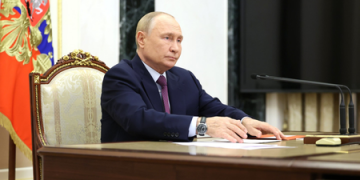Chennai, June 14: Waving currency notes, opposition DMK MLAs led by M K Stalin Wednesday staged noisy protests in the Tamil Nadu Assembly after their demand for a debate on alleged horse-trading involving ruling AIADMK legislators was disallowed and were evicted en masse when they did not relent.
As the issue of alleged pay-offs rocked the Assembly on the opening day of its Budget session, Stalin, who is Leader of Opposition, along with fellow MLAs resorted to a road blockade outside the state secretariat after their eviction and were detained by the police. Police later let the legislators off after a brief detention at a marriage hall.
Stalin demanded the dismissal of the AIADMK government over the issue of the alleged pay-offs. DMK cadres were also arrested in different parts of the state for staging demonstrations against the eviction of Stalin and others.
Trouble for the AIADMK, which is already in the grip of an intense factional feud, broke out after SS Saravanan, a party MLA belonging to the dissident faction led by O Panneerselvam, purportedly made some claims in a TV ‘sting’ operation about alleged pay-offs to ruling party MLAs ahead of the February 18 trust vote that was won by incumbent Chief Minister K Palaniswami.
Saravanan Tuesday said it was him in the video footage aired by the TV channel, but the voice was not his. In the Assembly, Speaker P Dhanapal disallowed a discussion as sought by Stalin, saying the matter, based on a private TV channel’s ‘sting’ operation, was sub-judice.
He later ordered the eviction of all DMK members as his repeated pleas for order and cooperation for the smooth conduct of proceedings fell on deaf ears. DMK has strength of 88 MLAs in the 234-member Assembly. Earlier, in a stormy start to the three-week long Assembly session, the DMK sought to raise the issue of alleged horse-trading.
The DMK MLAs resorted to high decibel sloganeering even as some of them were seen waving wads of currency notes, newspapers, and held papers with something written on it.
Dhanapal said there was a precedent for not allowing sub-judice matters to be discussed in the House.
Press Trust of India







































